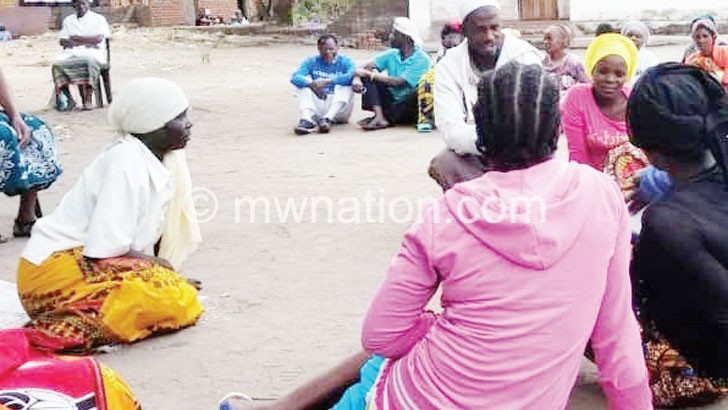Mental health matters
In 2015, President Peter Mutharika and other world leaders at the United Nations General Assembly adopted Sustainable Development Goals (SDGs), including promoting mental health for all.
This was the first time for the leaders to recognise mental well-being as a development priority.
But the global race towards achieving SDG3 and 17 on ensuring healthy lives and promoting well-being for all remains slow in Malawi. In the country, stigma remains rampant and many cases go untreated.

Unjust neglect
State-sponsored discrimination was huge in the 1930s when government was incarcerating people with mental illnesses as prisoners.
Despite shifting mental healthcare from the prison services to the Ministry of Health, psychiatric conditions remain heavily ignored.
In 2017, Ombudsman Martha Chazuma bemoaned lack of comprehensive transformative action to eliminate well-chronicled setbacks to mental health.
Her report, Out of Sight, Out of Mind, reads in part: “They are simply ignored. The sad part is that we are doing this to the most vulnerable group of health seekers who cannot speak for themselves.
“Instead of creating a system that helps such patients, we continue regarding them as a group of people that we would rather keep out of sight and as demonstrated in this investigation, out of mind. It is a very shameful thing for a country to do. It is a far cry from justice.”
The report tracked a Nation of Sunday investigation into punitive and unsanitary conditions at Bwaila Hospital’s mental health section in Lilongwe.
Ending Stigma
Clinical psychologist Dr Chiwoza Bandawe calls for an end to entrenched stigma and discrimination surrounding mental illness and disorders.
“Sadly, one challenge resulting from stigma and discrimination is that people would be afraid to seek treatment. Knowledge about the illness and the disorders is key to tackling this problem,” he says.
Bandawe, from University of Malawi’s College of Medicine (CoM), reckons entrenching mental literacy in communities would help people distinguish mental conditions and their neglected impact on individual and the nation.
“It is also very important for people to listen to stories of those who have experienced and recovered from mental illnesses or disorders, such as depression and anxiety,” he says.
For nine years, Mental Health Users and Carers Association (Mehuca) has been raising mass awareness about the neglected conditions.
The organisation visits schools and communities as well as radio and television stations, sharing knowledge and personal encounters with mental illness.
Such efforts help people understand that mental conditions are not permanent, says Bandawe.
“People can recover and resume with their normal lives,” he says.
But who is Mehuca?
Mehuca was founded in February 2010 when CoM and Scotland-Malawi Health needed a local organisation to facilitate the opening of mental clinics in Nsanje, Mulanje, Thyolo, Mangochi and Machinga.
“Initially, the idea was for them to train health workers in those districts to increase their knowledge and skills in dealing with people with mental health problems,” says its executive director Thandiwe Mkandawire.
However, it became a standalone organisation in 2015.
“When the project phased out, we expanded to Salima, Nkhotakota and Ntcheu where we also established clinics,” she explains.
A member of the Federation of Disability Organisations in Malawi (Fedoma), Mehuca promotes the welfare and rights of people with mental health problems so that they can participate in the society like any person.
To Mkandawire, equal participation in public life will help them confront stigma and realise their full potential.
“Volunteers, who include people with mental health problems and their careers, go to the clinics to share their experiences on mental health. We partner with psychiatric nurses and clinical or medical officers,” she says.
Every three months, Mehuca conducts mass awareness campaigns in various districts using drama, poetry or songs.
It also runs screening at Zomba and Chichiri prisons, referring cases of depression, anxiety, alcohol and drug abuse or bipolar to Zomba Mental Health or Queen Elizabeth Central Hospital for medical care.
The initiative is proving pivotal as people in mental problems rarely disclose their agonies for fear of widespread stigma.
“We have a long way to break the negative attitudes people hold against mental health problems. With awareness, all this is possible,” says Mkandawire.





